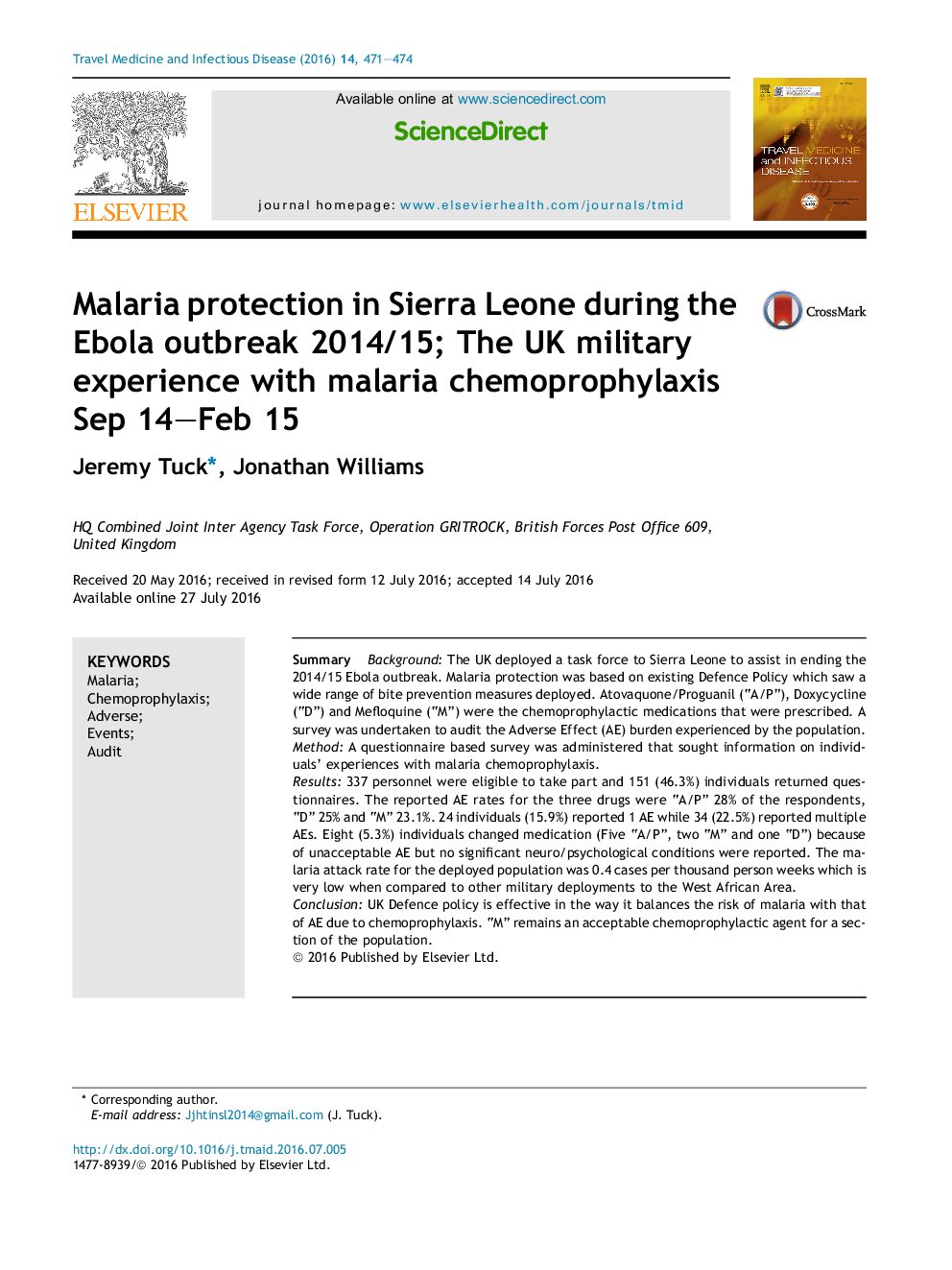| کد مقاله | کد نشریه | سال انتشار | مقاله انگلیسی | نسخه تمام متن |
|---|---|---|---|---|
| 5670627 | 1408022 | 2016 | 4 صفحه PDF | دانلود رایگان |
SummaryBackgroundThe UK deployed a task force to Sierra Leone to assist in ending the 2014/15 Ebola outbreak. Malaria protection was based on existing Defence Policy which saw a wide range of bite prevention measures deployed. Atovaquone/Proguanil (“A/P”), Doxycycline (“D”) and Mefloquine (“M”) were the chemoprophylactic medications that were prescribed. A survey was undertaken to audit the Adverse Effect (AE) burden experienced by the population.MethodA questionnaire based survey was administered that sought information on individuals' experiences with malaria chemoprophylaxis.Results337 personnel were eligible to take part and 151 (46.3%) individuals returned questionnaires. The reported AE rates for the three drugs were “A/P” 28% of the respondents, “D” 25% and “M” 23.1%. 24 individuals (15.9%) reported 1 AE while 34 (22.5%) reported multiple AEs. Eight (5.3%) individuals changed medication (Five “A/P”, two “M” and one “D”) because of unacceptable AE but no significant neuro/psychological conditions were reported. The malaria attack rate for the deployed population was 0.4 cases per thousand person weeks which is very low when compared to other military deployments to the West African Area.ConclusionUK Defence policy is effective in the way it balances the risk of malaria with that of AE due to chemoprophylaxis. “M” remains an acceptable chemoprophylactic agent for a section of the population.
Journal: Travel Medicine and Infectious Disease - Volume 14, Issue 5, SeptemberâOctober 2016, Pages 471-474
